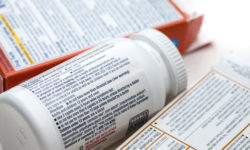Sinus infections may occur:
- after a virus causes a cold or upper respiratory tract infection
- with a severe episode of allergies
- when bacteria enters into the sinus areas
All of these events result in swelling of the normal mucous membrane that surrounds sinus openings. This causes a blockage or obstruction of sinus drainage that can lead to an infection of the sinus cavity itself. We call this an acute sinusitis.

Certain over-the-counter medications may help in preventing the progression of a sinus infection. These include:
- Saline rinses with a neti pot or a sinus rinse kit can help clear excessively thick mucus as well as reduce the swelling in mucous membranes.
- Oral decongestants also have been helpful in reducing swelling of the mucous membranes. These include pseudoephedrine and phenylephrine.
- Use of topical decongestants such as Neo-Synephrine or Afrin for a short period of time ( 3 days) can also assist in alleviating obstruction of the sinus openings.
Keep in mind that some of these medications may have side effects. It’s a good idea to ask your local pharmacist about possible interactions with medications you are on for other reasons before taking oral decongestants.
Sinus symptoms such as facial pressure, congestion and thick discolored mucus drainage that persists or gets worse after 7 days requires an evaluation by a healthcare provider.